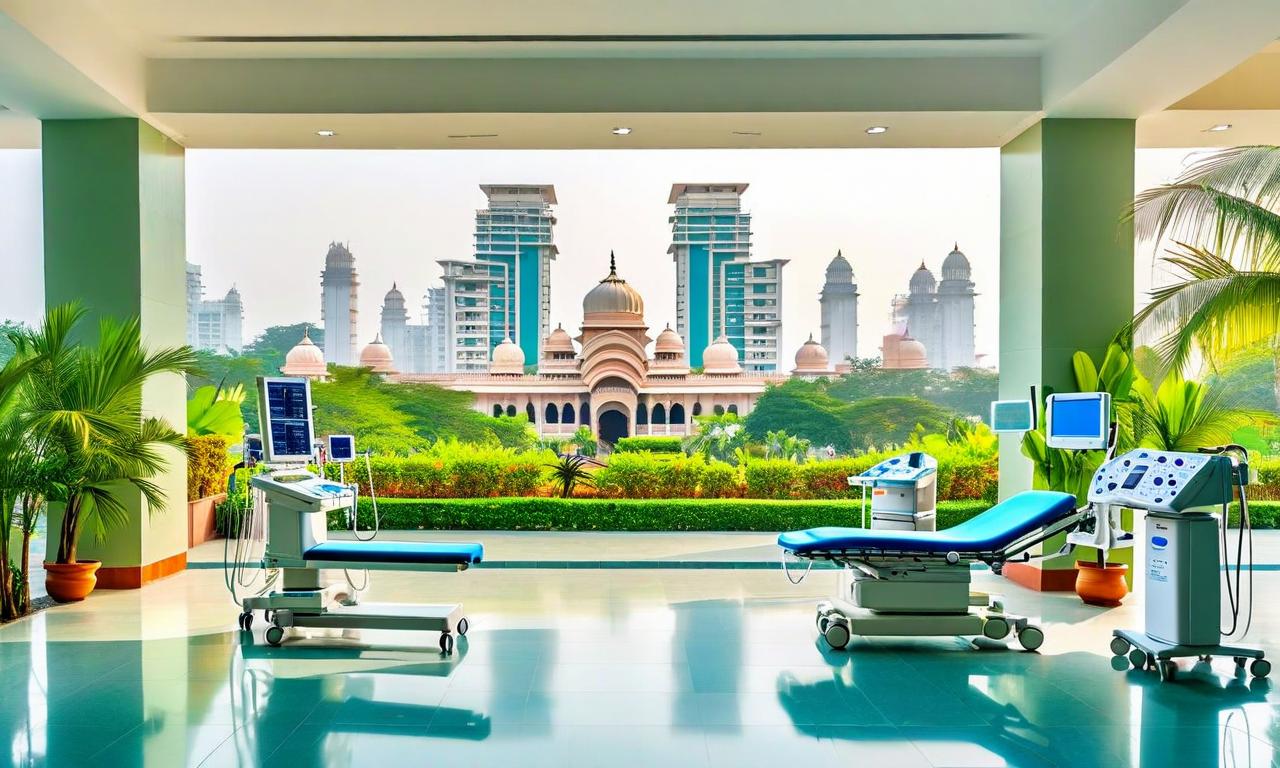Apollo Hospitals' MD Touts Healthcare Tourism as Potential Offset to US Tariff Impact
Suneeta Reddy, Managing Director of Apollo Hospitals, emphasized the potential of India's healthcare tourism sector at the 52nd National Management Convention of AIMA. She identified a $100 billion opportunity, suggesting that capturing 20% of this market could generate $20 billion by 2030, potentially offsetting losses from US tariffs. Reddy highlighted India's competitive advantages, including premium healthcare infrastructure and cost-effective clinical outcomes. She advocated for improved connectivity with countries having less developed healthcare systems and called for GST input cost reforms in the healthcare sector. Reddy also noted the positive impact of recent GST rate cuts and personal income tax reductions on consumer spending in healthcare.

*this image is generated using AI for illustrative purposes only.
Apollo Hospitals Managing Director Suneeta Reddy has highlighted the potential of India's healthcare tourism sector to mitigate the effects of US tariffs on India. Speaking at the 52nd National Management Convention of AIMA, Reddy outlined a significant opportunity in the healthcare tourism market.
$100 Billion Opportunity in Healthcare Tourism
Reddy pointed to a substantial $100 billion opportunity in the healthcare tourism sector. She suggested that if India could capture 20% of this market, it could generate $20.00 billion by 2030, potentially offsetting losses incurred from US tariffs through medical value travel.
India's Competitive Edge in Healthcare
The Apollo Hospitals MD emphasized India's advantages in the global healthcare market:
- Premium healthcare infrastructure
- Clinical outcomes delivered at one-tenth of international costs
- Potential to attract patients from countries lacking advanced healthcare systems
Call for Better Connectivity
To fully leverage this opportunity, Reddy advocated for improved connectivity with countries that have less developed healthcare systems. This strategic move could position India as a preferred destination for medical tourism.
GST Reforms and Economic Impact
Reddy also touched upon several economic factors affecting the healthcare sector:
GST Input Cost Reforms: She called for reforms in GST input costs for the healthcare sector, similar to those implemented in the education sector.
Recent GST Rate Cuts: Reddy welcomed the recent reductions in GST rates, linking them to increased consumer spending on insurance, education, and health.
Personal Income Tax Reductions: She noted that cuts in personal income tax have contributed to higher consumer spending in key areas, including healthcare.
Infrastructure Cost Reduction: Reddy pointed out that GST cuts on construction materials such as bricks, granite, and marble would help reduce healthcare infrastructure costs.
These economic measures, according to Reddy, could further boost India's competitiveness in the global healthcare market and support the growth of medical tourism.
As India's healthcare sector continues to evolve, Apollo Hospitals' strategic vision aims to position the country as a global healthcare destination, potentially creating a new avenue for economic growth and offsetting challenges in other sectors.
Historical Stock Returns for Apollo Hospitals
| 1 Day | 5 Days | 1 Month | 6 Months | 1 Year | 5 Years |
|---|---|---|---|---|---|
| -0.38% | +2.31% | +14.69% | -0.03% | +25.97% | +152.88% |




































